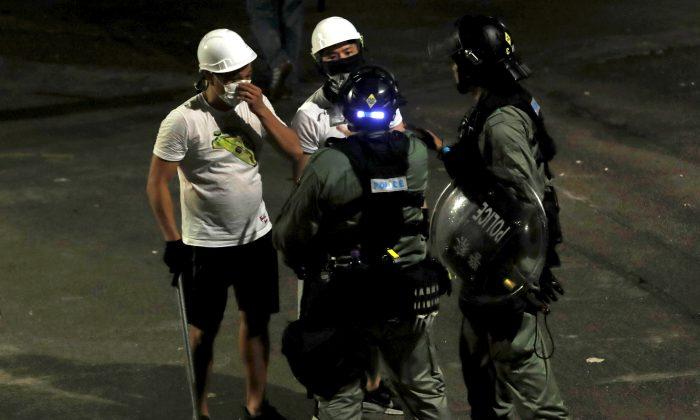China now experiences 500 protests on a daily basis; that’s over 180,000 a year, a troubling situation, with the psychology of the masses becoming easily unbalanced and public order is easily upset, according to a Chinese cadre.
While the Wukan protests in Guangdong Province late last year drew worldwide attention, an average of 500 such mass protests occurred daily in China during 2011, according to Niu Wenyuan, a member of the National Chinese People’s Political Consultative Committee.
“This phenomenon indicates that today public order is easily upset, and the psychology of the masses can quickly become unbalanced. We cadres, must continually assess [our] efficiency and fairness and adjust accordingly,” Niu said in a speech to fellow party cadres during the inaugural ceremony of the tenth Guangzhou Municipal Meeting on Feb. 8, reported on by New Express Daily and cited by Sound of Hope (SOH) Radio.
Pressing Issues in Growing Urban Centers
According to the SOH article, Niu is also a Chinese State Department counselor and a chief scientist and research head at the Sustained Military Strategy Division of the Chinese Academy of Sciences. He has been part of a new research and development city-planning group in China. The group publishes the Chinese City New Urban Planning Annual Report, which evaluates the progress of fifty cities.
In an interview with Nanfang Daily, Niu commented on China’s challenges with urbanization. He said China’s cities have to face seven “issues” in their development: sustainable wealth growth; population pressure; employment pressure; land, energy and water resource development strain; [need for] environmental improvement; infrastructure; and a social safety net.”
Niu’s statements reflect the Chinese communist regime’s anxiety over social unrest.
According to statistics from the Chinese Academy of Social Sciences, in 2007 the number of mass protests rose to over 80,000, a 33 percent jump compared with 60,000 in 2006. The regime subsequently stopped publishing this statistic, SOH said.
Landless Farmers
A large percentage of mass unrest in China is about forced land confiscation, as was the case in Wukan. Land confiscation is also directly related to urbanization. For many years, farmers all across China have been pushed off their land and forced to live in towns. Often they end up without any means to make a living.
Urbanization has been touted by the regime as the engine behind China’s future economic development. According to a recent announcement by China’s Bureau of Statistics, China’s urban population has now surpassed the number of people living in the countryside.
Professor Patrick Chovanec at Tsinghua University School of Economics and Management told VOA on Jan. 17, “Mainland China’s policy makers have used urbanization as an excuse to build many buildings, but didn’t think about how to turn all that into an economic advantage for sustainable development.”
Housing Bubble
In a Feb. 16 report, Bloomberg quoted Grantham, Mayo, Van Otterloo & Co. saying, “China’s housing market is experiencing the “mother” of all bubbles.”
Peter Chiappinelli, a portfolio strategist for asset allocation at Boston-based GMO, said at the Bloomberg Link Portfolio Manager Mash-Up Conference in New York that they are very concerned about China’s economy. GMO, which oversees $97 billion in assets, is betting that shares of Chinese real estate developers, construction companies and cement producers will decline, Chiappinelli said, according to the Bloomberg report.
Bloomberg also quoted Lisa Emsbo-Mattingly, the director of research in the global asset allocation division of Fidelity Asset Management, saying they are “very concerned about China,” and it is “very difficult” to have an optimistic view on China because the housing price drop will afflict China’s banks. Furthermore China’s export market has been cooling because of the European debt crisis.
All of this spells trouble for China’s social stability.
According to China analyst Huang Hebian, the Wukan protests have had the effect of waking the masses across China, and this foreshadows increased tensions between the regime and workers and peasants. Huang told The Epoch Times for an earlier report he believes that more protests will take place in March during the National People’s Congress.




Friends Read Free